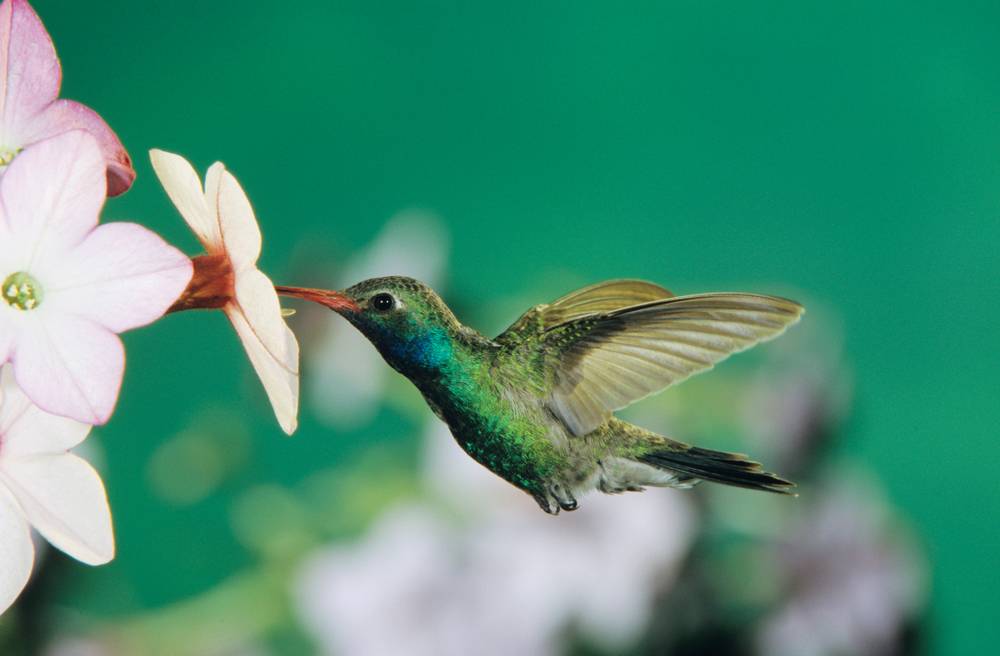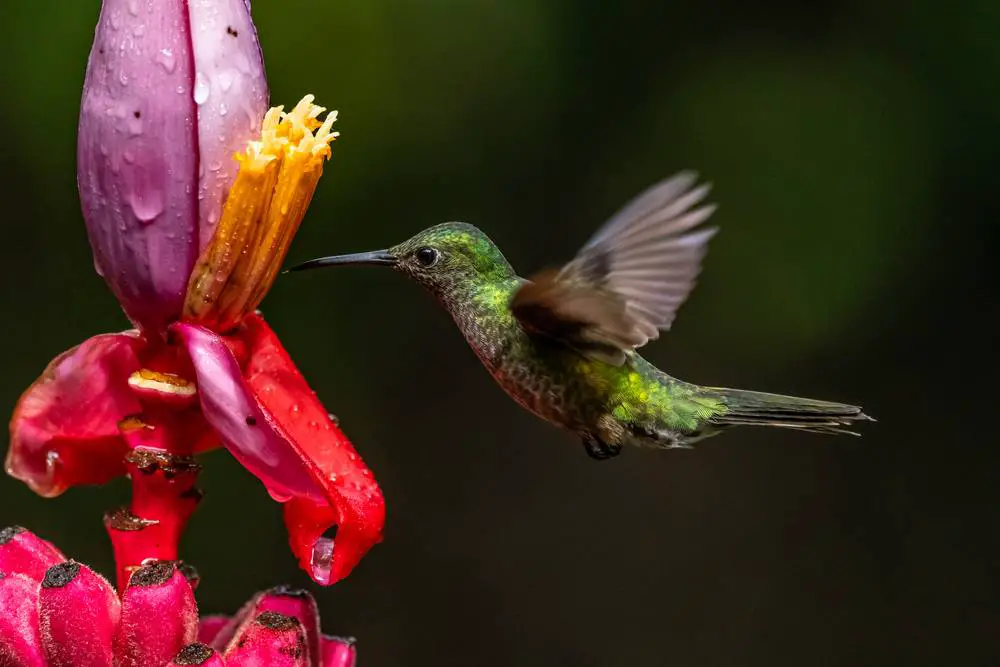The average lifespan of a hummingbird is three to five years, with most hummingbirds dying within a year of having hatched. In rare instances, hummingbirds have been documented to live over ten years of age.
Although ideal conditions can increase their lifespan, their small size makes them vulnerable to predators, habitat loss, and other human-related dangers.
Hummingbird Longevity
Under ideal conditions, hummingbirds are capable of living much longer than the average five-year life span, with two black-chinned hummingbirds having lived to fourteen years of age.
Hummingbirds in the wild, however, don’t often find themselves in the most ideal conditions.
Natural predators and habitat loss both play a role in how long hummingbirds live in the wild.
The Longest Hummingbird Lifespan Recorded
The longest age of a humming was recorded as 12 years. In 1976, a female hummingbird was branded in Colorado at age of 1 year and then the same was captured later after 11 years in 1987 at the same region.
Do different species of hummingbirds have different lifespans?

Yes, the lifespan of different species of hummingbirds are different. Most hummingbirds have an average lifespan of 3-5 years, however, there are some species that are a bit bigger than the regular ones (Giant Hummingbird) that live a longer life.
Some known/recorded age of hummingbirds
- The age of a banded Buff-bellied hummingbird was recorded as 11 years and 3 months.
- The age of a banded female Black-Chinned hummingbird was recorded as 10 years 9 months.
- The age of a banded Ruby-throated Hummingbird was recorded as 6 years 11 months.
- The age of Rufous Hummingbird was recorded as 8 years 1 month.
Natural Predators of Hummingbirds
In the wild, predators greatly reduce the lifespan of any animal, and with hummingbirds being such small creatures, this is especially true.
Even a fully grown hummingbird has a long list of predators.
In fact, hummingbirds are small enough that at times large fish will jump out of the water to try to eat them, mistaking them for large insects that are flying by.
Being this small is no easy feat for survival for hummingbirds.
Besides large fish, other natural predators of hummingbirds include the following:
- Snakes
- Lizards
- Bats
- Omnivorous birds
- Large songbirds
- Squirrels
- Chipmunks
- Praying mantises
- Orb-weaver spiders
- Domesticated and feral cats
- Owls
- Corvids
- Small birds of prey
Predators will often prey on hummingbirds where a hummingbird feeds, chooses to nest, or their favorite place to perch, essentially making them vulnerable the majority of the time.
Hummingbird Habitat Loss and Vulnerability
Another factor that contributes to hummingbirds having such a short life span is habitat loss and/ or alterations made to their environment.
Unfortunately, the small size of a hummingbird not only places them low on the food chain, but it makes them extremely vulnerable to changes in their habitat and environment.
Small birds are not as adaptable as larger species of birds, they have small habitats and niches and cannot easily relocate or compete with larger animals when they experience habitat loss as a result of human development.
Another factor is the introduction of invasive plant species into the environment.
Invasive plants are typically introduced by humans and often wreak havoc on entire ecosystems.
The invasive plants compete and overpower the natural vegetation, in this case eliminating nectar-producing food sources of hummingbirds.
Other Dangers Associated with Human Development
Not only are they experiencing habitat loss by invasive plant species and humans that contribute to their short life spans, but they also end up losing their lives due to exposure to man-made pesticides, window collisions, vehicle collisions, and bad bird feeders.
Reaching Double Digits
For a hummingbird, reaching double digits is a greater challenge than one might expect, though it is not completely unachievable as the two black-chinned hummingbirds have proved.
With a long list of predators, habitat loss, and unfortunate interactions with human development, it is no wonder the average lifespan of a hummingbird is only 5 years.
Conclusion
The average life of hummingbirds are not much but still they are so attractive that we want them in our backyard every year.
However, the average age of hummingbirds are 3-5 years but it is also influenced by the weather conditions.
Related Questions
How long do hummingbirds live without food? Hummingbirds digest their food in 15-20 minutes and constantly need food and can starve to death in just 3-5 hours. They constantly use their energy and lack of food can lead them to death, therefore always keep your feeder full of nectar.
How long can a hummingbird fly without eating? Hummingbirds eat 6-7 times per hour when they are awake. While migrating especially over Gulf of Mexico that takes them 20 hours to cover, they don’t get nectar. However, they have access to the small flying insects during the migration.


